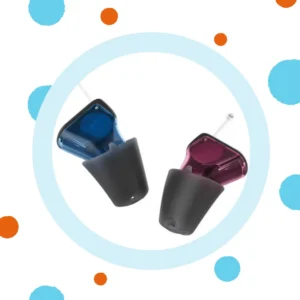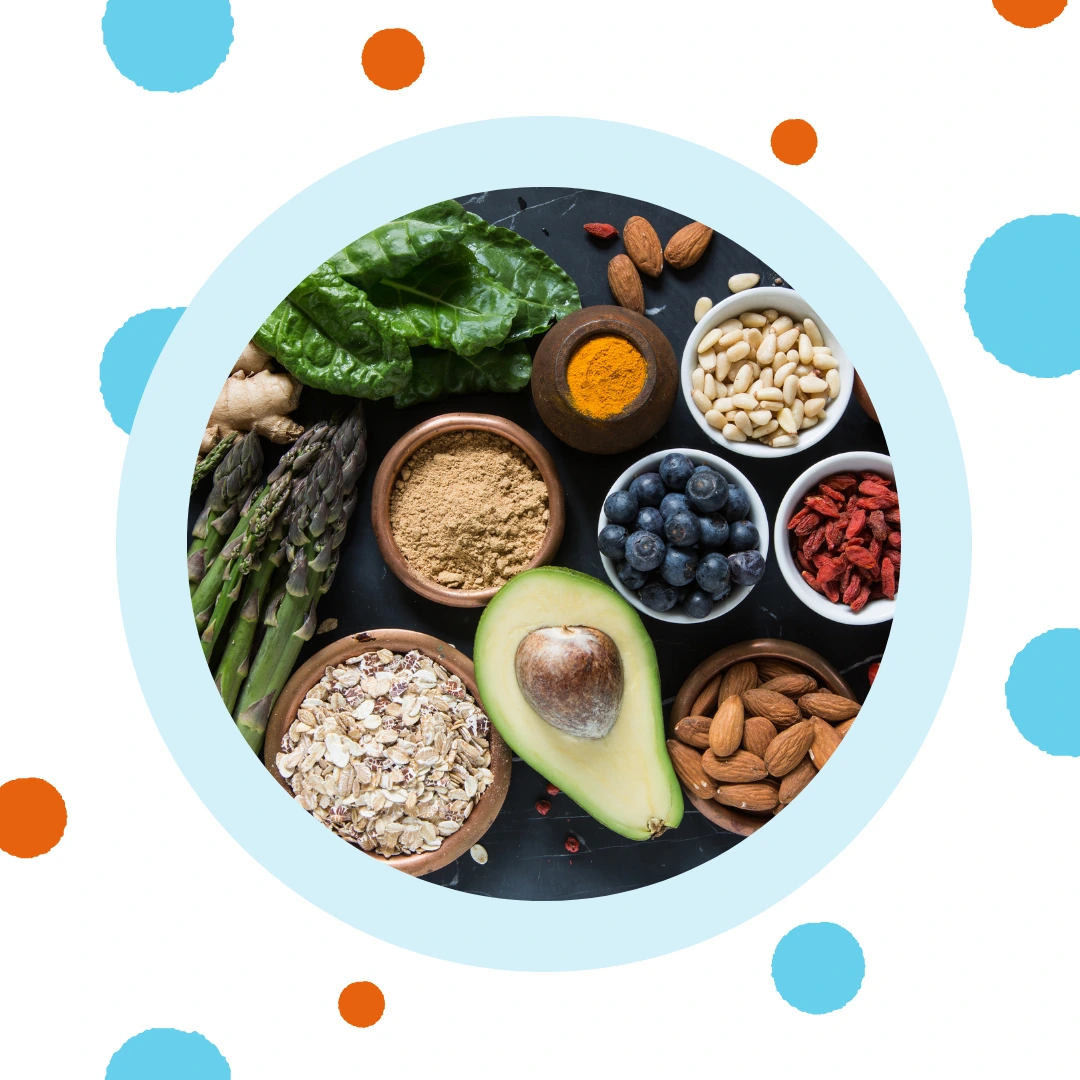
Best Hearing Aids for Small Ear Canals: Finding Your Perfect Fit
TL;DR: Small ear canals require specific hearing aid designs to ensure comfort and performance. The best options include completely-in-canal (CIC) models like the Signia Silk
Home » Can Your Diet Affect Your Tinnitus Risk?

Tinnitus affects about 14% of adults globally, and no, you’re not imagining that phantom buzzing. While there’s no cure yet, research suggests your snack choices might sway your tinnitus risk. In fact, several nutrients—including fruit, fiber, dairy, and caffeine—may reduce tinnitus risk. Yes, coffee lovers, you read that right.
Table of Contents
ToggleTinnitus is the perception of sound when there’s no external noise. It can sound like ringing, hissing, clicking, or humming. It’s usually subjective, meaning only you can hear it. Tinnitus often shows up with hearing loss, noise exposure, head injuries, stress, or ear infections. It can also arise from age-related hearing decline or underlying neurological issues.

There are multiple types of tinnitus. Subjective tinnitus is the most common—only the sufferer can hear the sound. Objective tinnitus, much rarer, is audible to others, often due to vascular issues. There’s also pulsatile tinnitus (matching your heartbeat), somatic tinnitus (triggered by movement), and even musical tinnitus (yes, your brain can loop songs without Spotify).
Regardless of the type, tinnitus can be life-altering. It can disturb sleep, fuel anxiety, and lead to depression. That’s why it’s so important to explore every avenue of relief—including your plate.
Researchers analyzed over 300,000 people across eight studies and found four dietary MVPs:

These foods may benefit your nerves and blood vessels and offer anti-inflammatory perks. That’s good news for your ears—and your grocery list. While the findings don’t prove causation, they point to promising dietary patterns.
We know. Caffeine has long been the tinnitus villain. For years, people were told to ditch their morning coffee to avoid ringing ears. But newer research challenges that advice. Moderate caffeine intake might improve blood flow and offer protective neurological benefits.
Of course, it’s not a green light to chug espresso. If caffeine makes your tinnitus worse, skip it. Everyone reacts differently. But if you’re tolerating your morning latte just fine, you might not need to give it up.
Some foods may worsen symptoms, though findings are mixed. Consider limiting these potential triggers:
The takeaway? Eat clean, monitor symptoms, and avoid food fads. Pay attention to how your body—and your ears—respond.
A diet rich in whole foods gives your auditory system the building blocks it needs to function properly. It’s not about one magic food—it’s about consistent nourishment.
Dehydration can spike tinnitus. Studies show people with tinnitus often drink less water. The inner ear relies on fluid to send sound signals accurately. Even mild dehydration can impact how those signals are processed.
Stay hydrated to support optimal auditory function. Drink water throughout the day—not just when you’re thirsty. And if your tinnitus worsens on hot days or after intense workouts, that could be your cue to drink more.
Gentle exercise can reduce stress and boost circulation—both tinnitus-friendly moves. Walking, yoga, and swimming are great options. They improve blood flow to the inner ear and reduce inflammation.
But beware of high-impact workouts. Running, weightlifting, or sports involving heavy strain can increase pressure in the inner ear. This can dislodge tiny crystals, leading to vertigo or tinnitus spikes. When in doubt, stick to low-impact routines and talk to your hearing care provider.
Stress and tinnitus love to feed off each other. Tinnitus triggers stress; stress worsens tinnitus. It’s a cycle worth breaking.
Mindfulness, meditation, deep breathing, and CBT (cognitive behavioral therapy) are proven ways to reduce both stress and tinnitus distress. Apps with white noise, nature sounds, or guided relaxation can also help.
Incorporating these habits into daily life can lead to fewer flare-ups and better overall well-being.
Learn the many benefits of hearing aids.
Sleep and tinnitus have a complicated relationship. Many people report that their symptoms feel worse at bedtime when it’s quiet. This makes falling and staying asleep difficult.
To improve sleep:
Good sleep hygiene can make tinnitus more manageable—and leave you better equipped to handle daily challenges.
Some medications and over-the-counter tinnitus remedies promise relief but lack strong scientific backing. Consult your hearing care provider before trying anything new.

Yes—especially if you also have hearing loss. Hearing aids amplify external sounds, which helps mask internal ringing. By improving hearing clarity, they reduce the brain’s need to “fill in the blanks” with phantom noise.
Many hearing aids also come with built-in tinnitus masking features. These use white noise or soothing tones to distract your brain from the ringing.
Wearing hearing aids regularly can:
If you suspect hearing loss or tinnitus, your first step should be a hearing test. But don’t stop there—get support tailored to your ears.
Discover the best affordable hearing aids for tinnitus management. .
Your ears might be small, but they have big nutritional needs. Eating a balanced diet rich in fruits, fiber, dairy, and even caffeine may reduce tinnitus risk. Exercise, hydration, and sleep habits all matter too. But managing tinnitus requires a full strategy—including the right hearing aids.
That’s where we come in.
At Injoy Hearing, we don’t just sell hearing aids—we deliver care, guidance, and results. Our licensed hearing care providers support every patient who buys from us.
If you’re experiencing tinnitus and want real solutions, not gimmicks, we’re here to help.
Don’t suffer in silence—feed your ears, treat your tinnitus, and hear what you’ve been missing. Contact Injoy Hearing today.

TL;DR: Small ear canals require specific hearing aid designs to ensure comfort and performance. The best options include completely-in-canal (CIC) models like the Signia Silk

Your audiologist just recommended rechargeable hearing aids. Great choice. But naturally, you want to know: how long before you’re shopping again? The answer splits into

You asked your spouse to repeat themselves. Again. The TV volume crept up another notch. Friends make jokes about your signs of hearing loss. These

You dropped serious money on Phonak hearing aids. Now you’re wondering how long they’ll actually work before you’re back at square one. Fair question. Hearing
To start your journey towards better hearing with confidence, Injoy is proud to offer a 45-day risk-free hearing aid trial. This allows you to experience the difference our hearing aids can make, ensuring they meet your expectations and fit your lifestyle perfectly.
Improve your hearing and improve your life today by contacting Injoy to learn more! Call (844) 914-3331

Need hearing aids? Explore our range of hearing aids and discover the best option for your lifestyle and Unique Hearing Needs.
Are you a current patient with us? We're here to help with any adjustments, repairs, or support you may need.